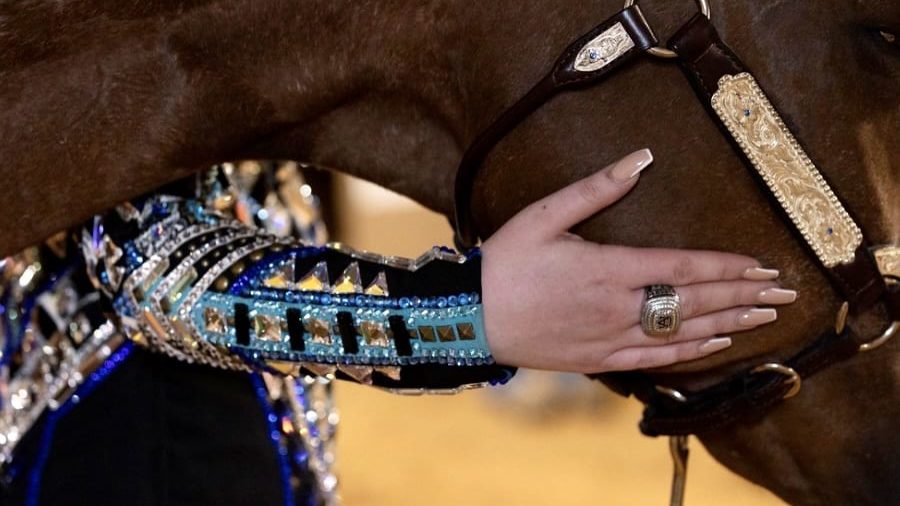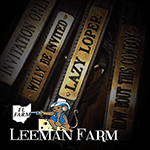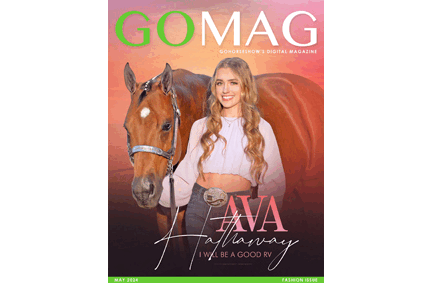This summer, the NCAA announced rule changes that allow college athletes to accept sponsorships. As a result, NCAA college athletes are now legally allowed to receive payments for their NIL (name, image, and likeness) deals, receiving compensation for their sponsorships, which they’ve long been barred from in the past.
Similarly, the USEF Amateur Task Force has recently made recommended rule change proposals, among them the proposal that amateurs can accept remuneration for posting or promoting products on social media as a social media influencer and social media brand ambassador and can wear manufacturer marks, barn or stable branding, or branded equipment required by a class sponsor to participate in competition.
We asked leading professionals and amateurs in the industry what they think about the idea of allowing amateurs to accept and pursue sponsorships or endorsements. Let us know what you think by commenting and voting in our reader poll.
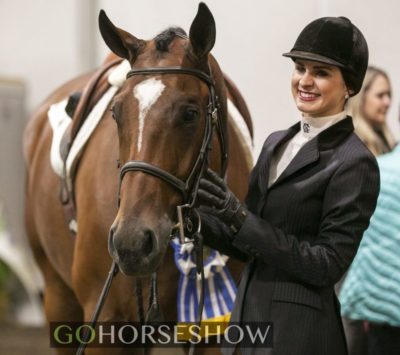 Maria Salazar – Yes. Amateurs should have the opportunity to accept sponsorships and product remuneration. The cost of horses and horse showing continues to increase and strain exhibitors, especially those without “deep pockets.” This would allow amateurs to try and offset their costs (i.e., discounted tack, trailers, breeding). With prices being offset, maybe they could attend more shows or invest in themselves and their horses to become better horsemen for the betterment of the industry. This alone would help any stock breed. Leveling systems would still exist to ensure a fair opportunity for beginners to enter the sport. Brands and vendors would have a chance to get their name advertised more with the addition of amateurs, and perhaps more brands would be interested in attending and sponsoring shows. The stock breeds benefit from amateurs showing and providing the majority of the stock for the open riders, so why not allow them to get a little back?
Maria Salazar – Yes. Amateurs should have the opportunity to accept sponsorships and product remuneration. The cost of horses and horse showing continues to increase and strain exhibitors, especially those without “deep pockets.” This would allow amateurs to try and offset their costs (i.e., discounted tack, trailers, breeding). With prices being offset, maybe they could attend more shows or invest in themselves and their horses to become better horsemen for the betterment of the industry. This alone would help any stock breed. Leveling systems would still exist to ensure a fair opportunity for beginners to enter the sport. Brands and vendors would have a chance to get their name advertised more with the addition of amateurs, and perhaps more brands would be interested in attending and sponsoring shows. The stock breeds benefit from amateurs showing and providing the majority of the stock for the open riders, so why not allow them to get a little back?
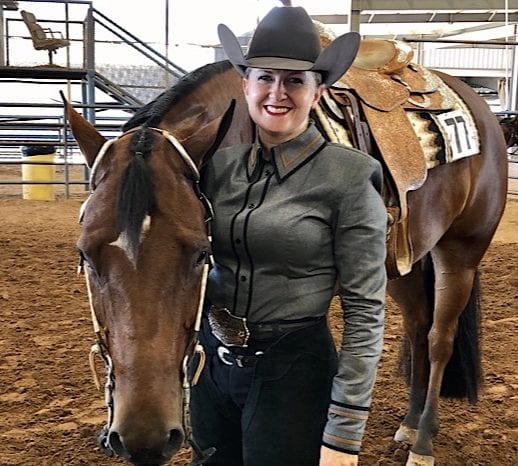 Beckie Peskin: I don’t see an issue with it. There are already amateurs that are skirting the remuneration rules in lots of different ways. So, I’m not sure this makes anything worse, and maybe it allows a few more amateurs to afford to stay in an already shrinking industry.
Beckie Peskin: I don’t see an issue with it. There are already amateurs that are skirting the remuneration rules in lots of different ways. So, I’m not sure this makes anything worse, and maybe it allows a few more amateurs to afford to stay in an already shrinking industry.
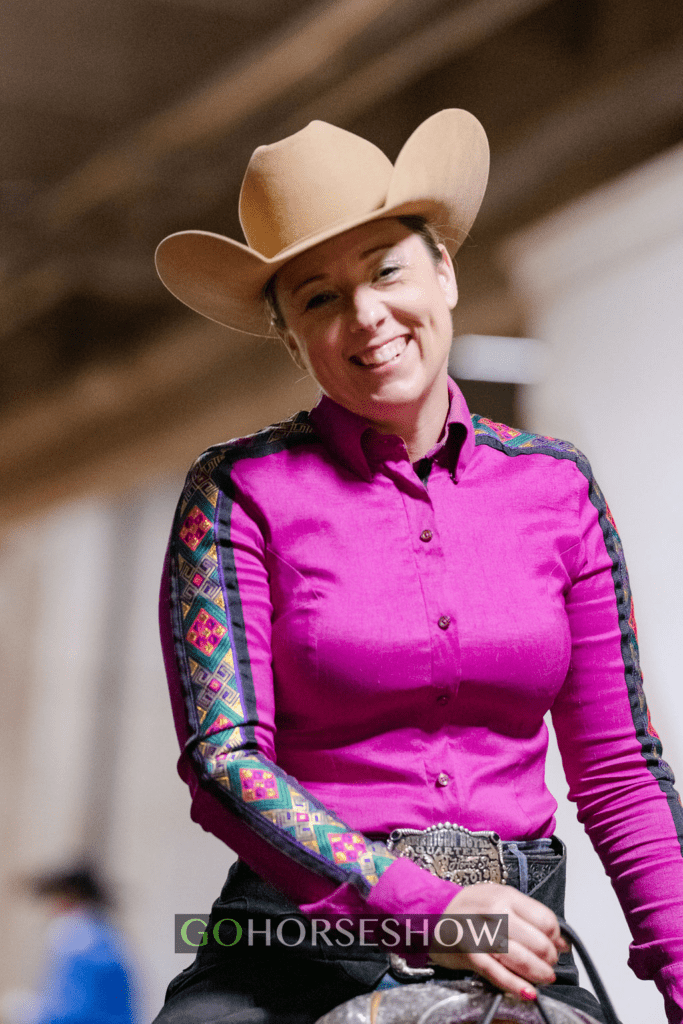 Shannon Walker: I think it’s good for amateur exhibitors to help promote products. Retailers trying to promote products within the industry can get them out there and sell them because they are followed at the shows and have many followers on their social media sites. For most of these amateurs, it’s a full-time job competing. If you want to compete on a high level, it will help offset some of the costs of showing to be sponsored. It’s a win-win for the amateur and the retailer trying to promote a product, not to mention the industry itself.
Shannon Walker: I think it’s good for amateur exhibitors to help promote products. Retailers trying to promote products within the industry can get them out there and sell them because they are followed at the shows and have many followers on their social media sites. For most of these amateurs, it’s a full-time job competing. If you want to compete on a high level, it will help offset some of the costs of showing to be sponsored. It’s a win-win for the amateur and the retailer trying to promote a product, not to mention the industry itself.
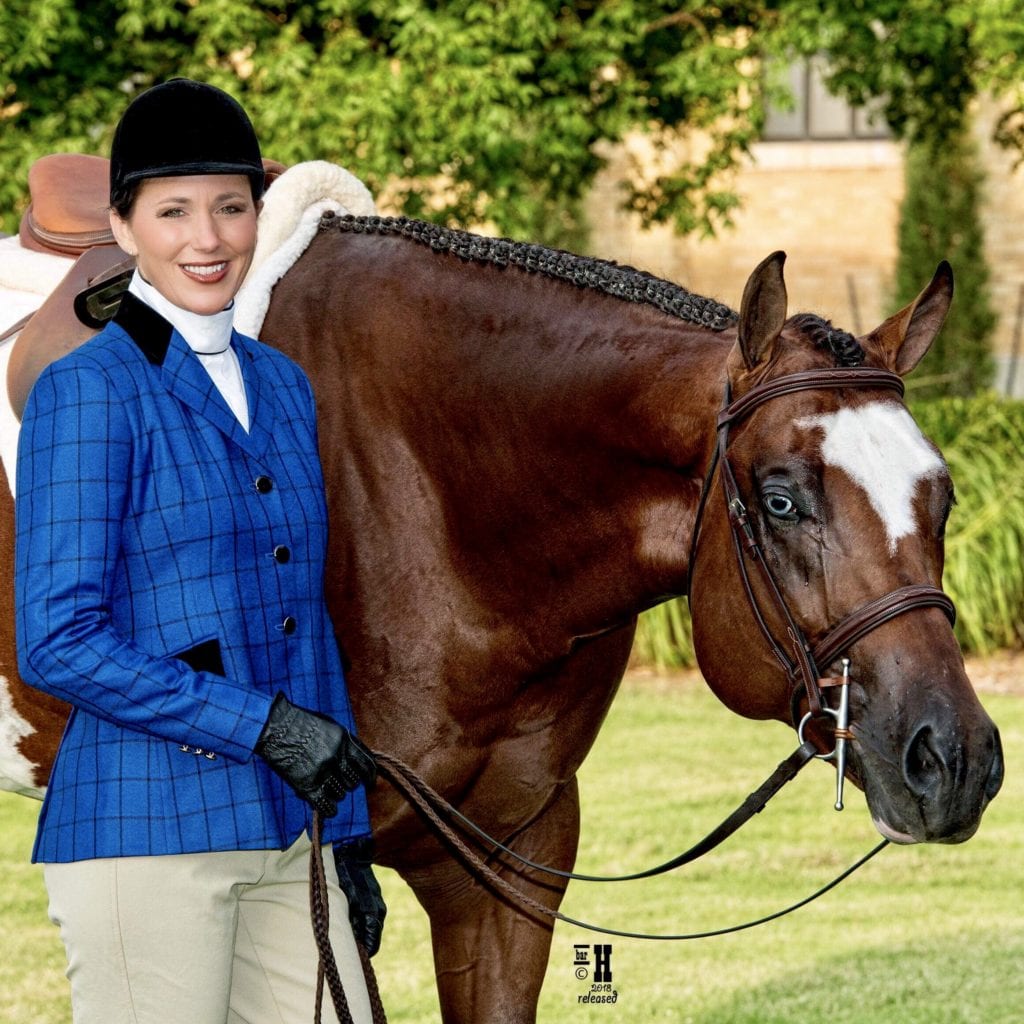 Elizabeth “Spike” Brewer: I do not have an issue with it. A lot of companies already hire influencers, so what is the difference? Our industry is changing in so many ways, and I choose to support anything that supports the amateur/non-pro owner.
Elizabeth “Spike” Brewer: I do not have an issue with it. A lot of companies already hire influencers, so what is the difference? Our industry is changing in so many ways, and I choose to support anything that supports the amateur/non-pro owner.
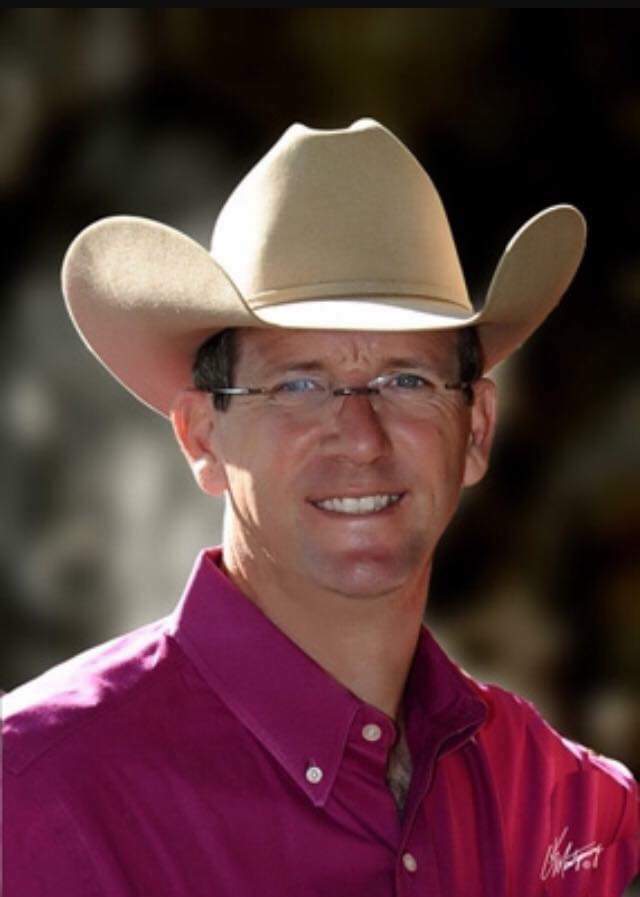 Robin Frid: Historically, I think it [amateurs receiving remuneration for sponsorships] could be a problem. However, a sponsorship won’t change how anyone performs in the arena from a judge’s perspective. As a judge, I don’t have time to notice if you’re wearing a sponsored logo.
Robin Frid: Historically, I think it [amateurs receiving remuneration for sponsorships] could be a problem. However, a sponsorship won’t change how anyone performs in the arena from a judge’s perspective. As a judge, I don’t have time to notice if you’re wearing a sponsored logo.
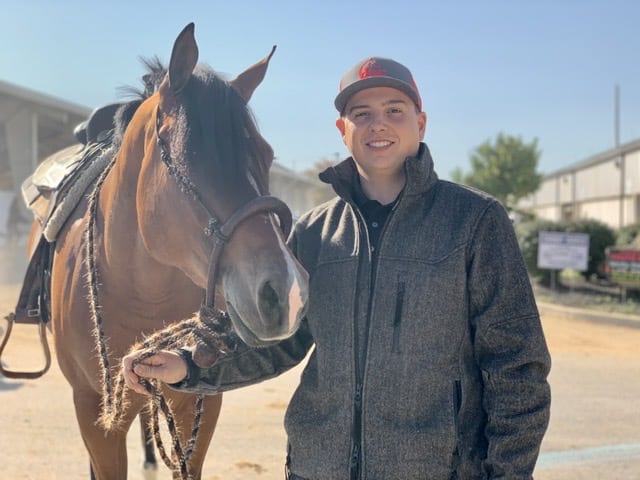 Austin Gooding: I would be strongly against this. The primary goal of almost every NCAA athlete is to become a professional athlete, and there is no in-between, unlike an amateur in the pleasure horse or stock breed industry where there are plenty of loopholes and ways to get around being a professional, but still do things that non-pros should not. In addition, there is so much more money to go around in professional football, baseball, basketball, etc., that their sponsorships will most likely be in the hundreds of thousands or millions. In contrast, it would be hundreds or thousands in our industry, which means a lot for professional trainers if some companies decide to give sponsorship perks to a high-end amateur rather than a trainer that can hurt their business. It is not apples to apples, in my opinion.
Austin Gooding: I would be strongly against this. The primary goal of almost every NCAA athlete is to become a professional athlete, and there is no in-between, unlike an amateur in the pleasure horse or stock breed industry where there are plenty of loopholes and ways to get around being a professional, but still do things that non-pros should not. In addition, there is so much more money to go around in professional football, baseball, basketball, etc., that their sponsorships will most likely be in the hundreds of thousands or millions. In contrast, it would be hundreds or thousands in our industry, which means a lot for professional trainers if some companies decide to give sponsorship perks to a high-end amateur rather than a trainer that can hurt their business. It is not apples to apples, in my opinion.
 Katie Mitchell: This is a bit of a tough question about paralleling NCAA to USEF because I believe that the change in guidelines should flow straight across to include all college-age competitors in all sports. Our rules and guidelines that are in place now are 10-decade old rules, and we live in a different time and place now. People may believe endorsements, sponsorships, and media time will influence the judges, giving the illusion of politics. Providing that all of our judges are judging appropriately and according to standards, “politics” shouldn’t have a play. But, people are still negative towards any favoritism given to any individual competitor, whether they be non-pro or open.
Katie Mitchell: This is a bit of a tough question about paralleling NCAA to USEF because I believe that the change in guidelines should flow straight across to include all college-age competitors in all sports. Our rules and guidelines that are in place now are 10-decade old rules, and we live in a different time and place now. People may believe endorsements, sponsorships, and media time will influence the judges, giving the illusion of politics. Providing that all of our judges are judging appropriately and according to standards, “politics” shouldn’t have a play. But, people are still negative towards any favoritism given to any individual competitor, whether they be non-pro or open.
When it all boils down, a person should control their image and how they promote their image. Some athletes will only have the opportunity for financial gain by endorsements or influencing themselves on media, especially since less than 2% of college athletes make it to “pro,” so allowing them to gain some remuneration while they can is only fair. I would have to say the same would follow through in USEF. A small number of non-pros go on to a professional career, so letting them gain remuneration while active in their non-pro career should be fair. Keep in mind that while answering this question, we are talking about USEF as a whole in every discipline, not just stock horse showing.
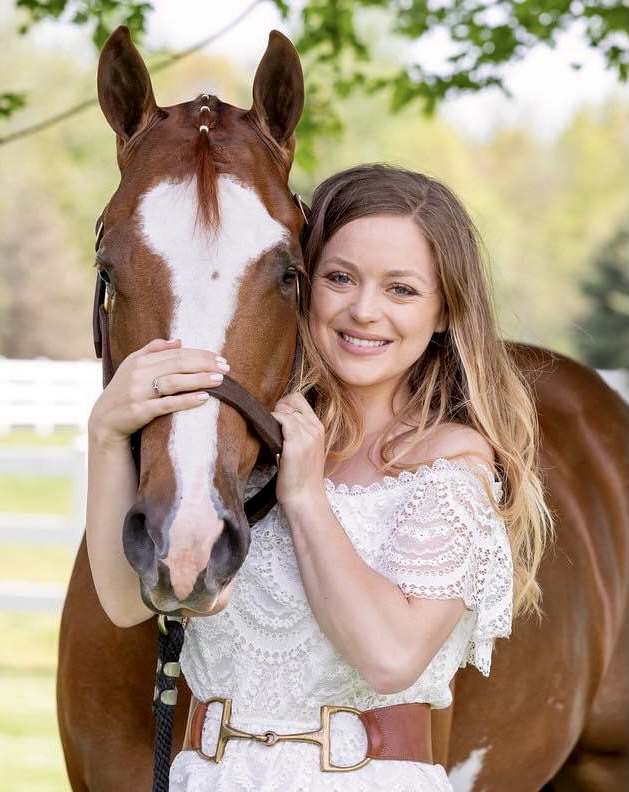 Alexis Solakian: I don’t think amateurs should be allowed to accept sponsorships. The point of an amateur is to be a non-professional. Sponsorships need to be reserved for those who make their living off this sport. I think the line between non-pros and trainers has recently become a bit blurred, and changing this rule would only further blur that line.
Alexis Solakian: I don’t think amateurs should be allowed to accept sponsorships. The point of an amateur is to be a non-professional. Sponsorships need to be reserved for those who make their living off this sport. I think the line between non-pros and trainers has recently become a bit blurred, and changing this rule would only further blur that line.
 Brad Jewett: Simply, yes. I’ve never really understood the NCAA rules or knew all of them, but it made no sense that they [collegiate athletes] couldn’t even keep the Congress trophies they won while on an NCAA team. I understand some people cheat the system. There always will be, but for the most part, these riders have dedicated their lives to the sport, and I think they should be allowed to accept remuneration for their hard work. It will only help the industry that raised them.
Brad Jewett: Simply, yes. I’ve never really understood the NCAA rules or knew all of them, but it made no sense that they [collegiate athletes] couldn’t even keep the Congress trophies they won while on an NCAA team. I understand some people cheat the system. There always will be, but for the most part, these riders have dedicated their lives to the sport, and I think they should be allowed to accept remuneration for their hard work. It will only help the industry that raised them.
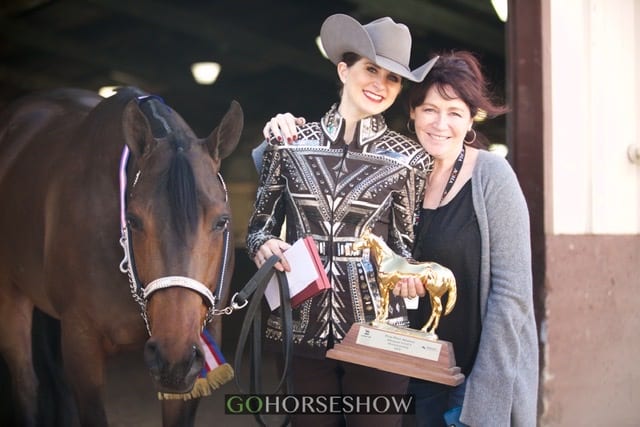 Shannon McCulloch Bacon: Absolutely. Our industry has so many accomplished amateurs that exhibit a strong dedication and support of the industry. These amateurs are visible at shows and on social media and would be an asset to many companies who choose to sponsor them.
Shannon McCulloch Bacon: Absolutely. Our industry has so many accomplished amateurs that exhibit a strong dedication and support of the industry. These amateurs are visible at shows and on social media and would be an asset to many companies who choose to sponsor them.
What do you think about this hot button issue? Vote in our poll and comment to let us know.


